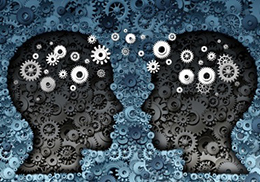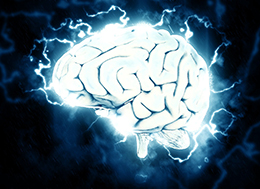
An analysis carried out by Rosa Redolat and Patricia Mesa-Gresa, psychology professors in the Universitat de València, concludes there are “modifiable risk factors” which improve cognitive aging. In view of these factors, new strategies might be considered in order to endure cognitive vitality throughout life.
29 june 2016
Good aging involves behavioural, physical, biological and social factors which should be taken into account when designing interventions to prevent physical and cognitive damage during ageing. In fact, pathological changes in Alzheimer can be detected even 20 years earlier than clinical studies do it. For this reason, prevention is crucial as a key strategy to reduce dementia in the society. These experts in psychology stated so in their article: “Brain health as a key concept in the development of strategies to delay aging related to cognitive decline and Alzheimer”, published in the Journal of Parkinson’s disease & Alzheimer’s disease in December 2015.
Pathological changes in Alzheimer can be detected even 20 years earlier than clinical studies do it. For this reason, prevention is crucial as a key strategy to reduce dementia in the society
The increase of neurodegenerative diseases entails, on more than one occasion, economic, social and cultural consequences, as well as a negative impact on public health. However, it also means a challenge for scientists to look for new strategies to delay this type of diseases.
The authors discuss the possibility of developing new strategies based on the perspective of the life cycle, according to the latest advances in diagnosis of Middle Cognitive Impairmente (MCI), given that the main aim is to endure our physical and cognitive health, at the same time that we achieve better mental health and an increase in social welfare.
The authors discuss the possibility of developing new strategies based on the perspective of the life cycle
Throughout their analysis, Redolat and Mesa-Gresa try to highlight the most effective approaches to prevent cognitive impairment and Alzheimer, just as in the case of “Brain health”. But, what do they mean by “Brain health”? Although the definition of this term differs between the studies addressing the topic, the authors of the work explain that it is an aim based on the application of several preventive strategies which lately gains relevance in healthy brain aging research.
Likewise, some recent studies suggest that some risk factors for Alzheimers´s disease are modifiables: obesity, hypertension or sedentary lifestyle. In this sense, improving these factors might mean a slight delay in the age of onset of neurodegenerative disorders, which would mean a significant impact in public health. As the authors explain, a better understanding of cognitive aging and the brain could also help to further comprehend Alzheimer’s development. In this sense, it is of the utmost importance that neuroplasticity is promoted through cognitive and physical training.
A better understanding of cognitive aging and the brain could also help to further comprehend Alzheimer’s developmen
Interventions
In the last years, different interventions have been proposed with the objective of obtaining a healthy aging. One of the developed strategies is cognitive training, including computerized training and videogames. It can have long term positive effects, since it allows us to work out memory and cognitive performance. Still, more research is needed in order to analyse the transfer of these profits to daily life.
“Psychoeducation” has also been suggested as a component which improves state of mind, sleep functions and cognitive performance. Also, musical training improves phonological fluency and memory. For this reason, it has been suggested as a model for brain plasticity evaluation throughout life. And physical activity benefits neurogenesis in several areas of the brain, including the hippocampus. Several researches associate the increase of Brain-derive neurotrophic factor (BDNF), a protein that helps neurons to survive, with physical exercise or changes in nutrition; while its decrease is associated with stress.
Physical activity benefits neurogenesis in several areas of the brain, including the hippocampus
Other aspects to take into account are related to environmental setting and different lifestyles. Any change in these aspects can modulate adult neurogenesis. Social commitment, bilingualism or education might play an important role in healthy brain aging, although more evidence is needed. Likewise, diet is also relevant in terms of preventing Alzheimer. The Mediterranean diet stands out as a pattern which can help improving cognitive function.
Different lifestyle factors, mentioned before, seem to have a great potential for the prevention of this illness. Therefore, "an appropriate understanding of the underlying mechanisms of the neurobiological effects of these factors is crucial to designing better interventions", point out Redolat and Mesa-Gresa in their analysis.









